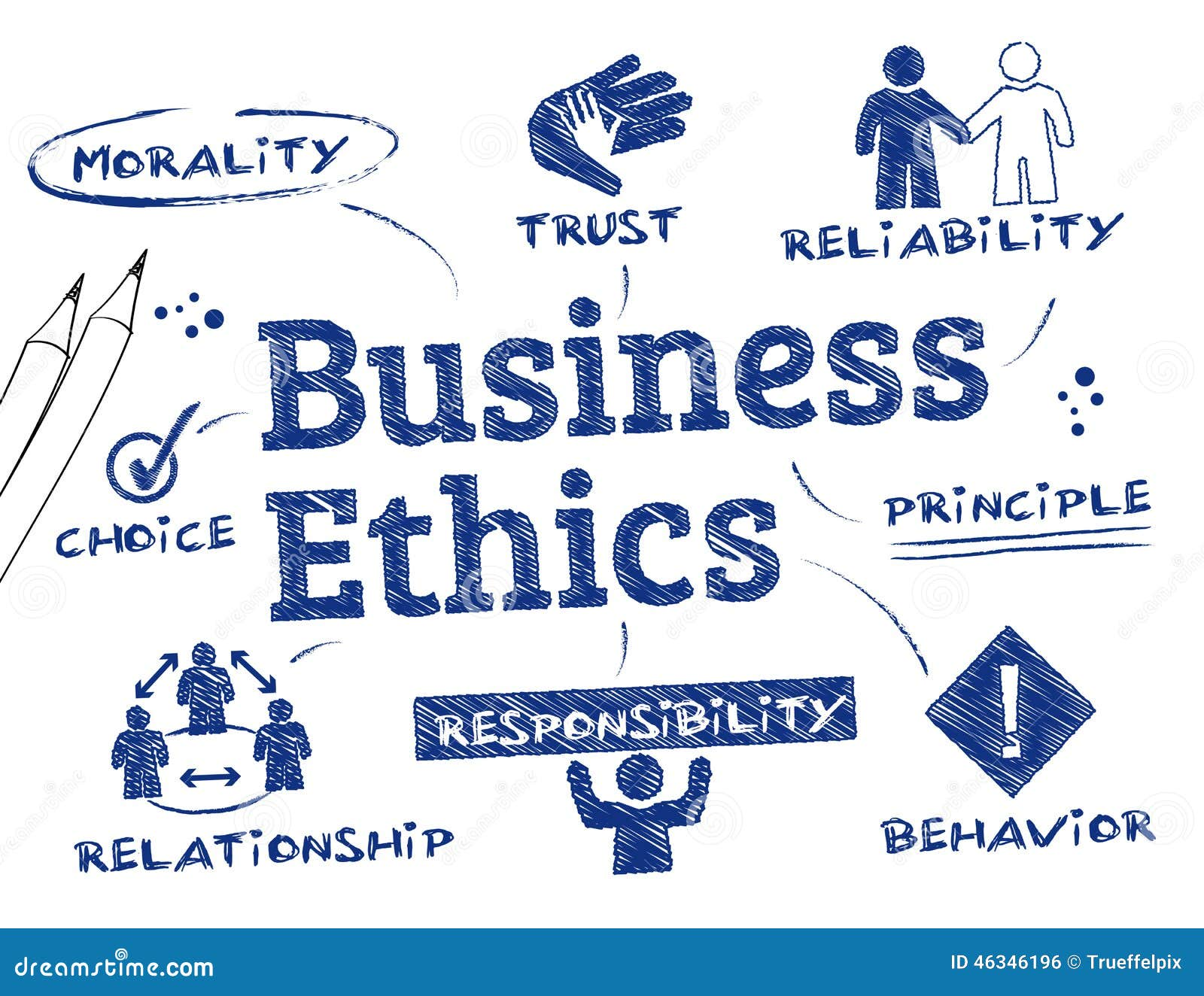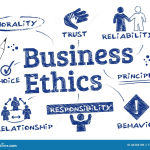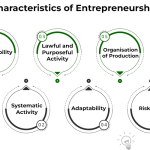In today’s complex business environment, **business ethics** play a crucial role in guiding the decision-making processes of leaders and organizations. With an increase in scandals involving high-profile executives, such as Sam Bankman-Fried and Elizabeth Holmes, understanding the nuances of ethical decision-making has never been more critical. According to Joseph Badaracco, a leading authority on business ethics, navigating the gray areas in ethics requires a deep reflection on one’s responsibilities and the impact of decisions on various stakeholders. This intricate web of modern business relationships compels leaders to adopt a thoughtful approach to ethical dilemmas, balancing legal obligations with moral imperatives. As organizations become more entwined in societal issues, a robust framework for business leadership grounded in ethical principles becomes essential for sustainable success.
In the realm of corporate responsibility, the concept of ethical conduct is paramount to effective governance and operations. The importance of moral accountability in leadership cannot be overstated, especially as organizations contend with both external pressures and internal challenges. As we delve into this discussion on ethical practices in business, we must consider how leaders confront the complexities of stakeholder relations and the implications of their choices. Reflective engagement in decision-making processes allows executives to navigate the intricacies of their roles, fostering an environment where ethical considerations inform strategies and policies. This evolving landscape of corporate ethics emphasizes the need for a proactive stance toward responsible leadership and sustainable practices.
Understanding the Evolution of Business Ethics
Business ethics have undergone significant changes in recent decades, reflecting the complexities of the global economy and technological advancements. In the past, ethical frameworks primarily focused on moral philosophy, teaching concepts like utilitarianism and deontology. However, as Joseph Badaracco points out, the contemporary approach at institutions such as Harvard Business School is more contextual. Decision-making now emphasizes understanding specific circumstances, challenging students to analyze the ethical implications of their choices continuously.
This shift has led to a more nuanced understanding of ethical dilemmas. Business leaders today are frequently confronted with gray areas in ethics—situations where the right course of action is not immediately clear. This has made it essential for executives to engage in reflection in decision-making, weighing various stakeholder interests and the impact of their actions. In this environment, it’s crucial for leaders to consider not only what is legal but what is ethical and right, as business ethics are increasingly intertwined with social responsibilities.
The Complexity of Ethical Decision-Making
Ethical decision-making is often more complicated than a straightforward analysis of legal compliance. Today’s executives must navigate an intricate web of relationships involving diverse stakeholders, each with varying expectations. As described by Joseph Badaracco, the landscape of business ethics is marked by ‘gray areas’ where conventional moral rules may conflict. In such situations, decision-makers face the challenge of balancing competing obligations, thereby requiring advanced ethical reasoning that transcends simple right or wrong.
The process involves a deeper layer of reflection than merely identifying legal guidelines. Effective ethical decision-making calls for leaders to engage their judgment and introspection. They must ask critical questions about the potential consequences of their decisions, the underlying motivations, and how to align actions with ethical standards. Encouraging open dialogue and collaboration can also help mitigate cognitive biases and foster a culture of ethical awareness that permeates the organization.
Navigating Gray Areas in Ethics
Gray areas in business ethics represent challenges that test the limits of conventional moral frameworks. Leaders often encounter scenarios where legal and ethical boundaries are blurred, making the decision-making process particularly daunting. As illustrated by high-profile cases like that of Sam Bankman-Fried, distinguishing between right and wrong can be muddied when personal interests and external pressures come into play. The responsibility falls on executives to discern the ethical implications of their actions and resist the temptation to rationalize dubious practices.
Understanding these complexities requires both analytical skills and emotional intelligence. Leaders must cultivate a decision-making culture that prioritizes ethical considerations alongside profitability. Engaging in honest discussions about potential ethical dilemmas and seeking diverse perspectives can help clarify critical facts and responsibilities. Ultimately, recognizing that ethical decisions often exist on a spectrum empowers executives to confront challenges thoughtfully and responsibly.
The Role of Reflection in Ethical Leadership
Reflection plays a vital role in ethical leadership, serving as a tool for deeper understanding and decision-making. Joseph Badaracco emphasizes the importance of self-reflection for executives, suggesting that it often leads to more ethical choices. Leaders are encouraged to adopt various methods of reflection, such as quiet contemplation or discussions with trusted colleagues, to sift through their options thoughtfully. Engaging in reflection allows leaders to consider their core responsibilities and what truly matters, which is key when navigating ethical dilemmas.
Moreover, creating space for reflection in an organization’s culture can lead to more robust ethical decision-making practices. Leaders who model reflective behavior set a tone that encourages team members to voice concerns and share their perspectives on ethical issues. This collaborative approach fosters a culture where ethical deliberation is viewed as an essential component of business operations, ultimately contributing to more sound and responsible outcomes.
Challenges in Ethical Judgment
In today’s business environment, the path to ethical judgment is fraught with challenges. The complexity of contemporary issues means that ethical decision-making is rarely a straightforward exercise in applying rules or principles. Instead, leaders must often engage in a more subjective process, weighing competing values and deciding on the best course of action amidst ambiguity. Joseph Badaracco asserts that good and bad judgments exist on a spectrum, informed by both analytical thought and personal intuition.
This is particularly evident in situations with significant gray areas where conventional legal definitions of right and wrong apply unevenly. To navigate these challenges, decision-makers must develop their judgment skills, leveraging experience, industry knowledge, and ethical frameworks. By fostering ongoing ethical discussions within their teams, leaders can cultivate a decision-making environment that values integrity and accountability, ultimately leading to more responsible business practices.
The Necessity of Ethical Leadership in Complex Environments
In an increasingly interconnected world, the necessity for ethical leadership becomes more pronounced. As companies engage with diverse stakeholders across geographical and cultural boundaries, ethics must play a central role in guiding decisions and actions. Leaders like Joseph Badaracco highlight that the stakes of ethical decision-making are higher than ever, particularly as organizations are expected to address a broader array of social issues. This shifting landscape demands leaders who are not only technically skilled but also ethically astute.
To navigate these complexities, organizations need leaders who can balance profit motives with social responsibilities. Ethical leaders must possess the ability to communicate effectively, understand diverse viewpoints, and make decisions that align with the greater good while still ensuring organizational success. By prioritizing ethical leadership, companies can build trust with their stakeholders and create sustainable practices that contribute positively to society.
Practical Strategies for Ethical Decision-Making
Implementing practical strategies for ethical decision-making is essential for contemporary business leaders. Badaracco’s insights underscore the importance of a systematic approach when faced with complex dilemmas. Firstly, leaders should invest time in gathering essential information and perspectives relevant to the situation at hand, ensuring they fully comprehend the stakeholders and ethical implications involved. This process sets the groundwork for more informed decision-making.
Secondly, fostering a culture of ethical dialogue within the organization can significantly enhance decision-making outcomes. Leaders should encourage open conversations about ethical challenges, enabling team members to express concerns and perspectives. This collaborative approach not only enriches the decision-making process but also strengthens the overall ethical framework of the organization, reducing the potential for unethical behavior stemming from ambiguous situations.
The Impact of Technology on Business Ethics
Technological advancements bring both opportunities and ethical challenges in the business landscape. As organizations increasingly rely on artificial intelligence and data analytics, the ethical implications of these technologies must be critically examined. Business leaders need to reflect on their responsibilities regarding data privacy, algorithmic biases, and the impact of automation on employment. Joseph Badaracco emphasizes that these technological shifts necessitate an evolved understanding of ethical frameworks.
Companies must proactively address the ethical dilemmas posed by technology, ensuring alignment with their core values and stakeholder expectations. Engaging in transparent practices and implementing robust ethical guidelines can help mitigate risks associated with technological innovations. By prioritizing ethical considerations in technological deployments, organizations can navigate complexities while maintaining the trust of their customers and communities.
Building an Ethical Decision-Making Culture
Creating an ethical decision-making culture is fundamental for any organization aiming for long-term success. Leaders must model ethical behavior and establish clear expectations for conduct across all levels of the organization. By integrating ethics into the core mission and values, businesses can reinforce the importance of integrity in decision-making processes. Joseph Badaracco advocates for aligning organizational goals with ethical principles to ensure a cohesive approach to leadership and accountability.
Moreover, training programs focused on ethical reasoning and decision-making can provide employees with the tools they need to navigate complex situations. Through case studies and discussions that engage with real-life dilemmas, organizations can prepare their teams to think critically about ethical challenges they may face. Ultimately, fostering an ethical decision-making culture solidifies trust and accountability, transforming challenges into opportunities for ethical leadership.
Frequently Asked Questions
What is the significance of ethical decision-making in business ethics?
Ethical decision-making is fundamental to business ethics as it provides a framework for leaders to evaluate their choices based on moral principles and organizational values. It involves analyzing various factors in a decision-making situation, considering stakeholder perspectives, and aligning actions with ethical standards to foster integrity and trust in business practices.
How can Joseph Badaracco’s approach help in resolving gray areas in ethics?
Joseph Badaracco emphasizes a nuanced approach to business ethics that recognizes the complexity of gray areas. His methodology encourages leaders to reflect deeply on the context of ethical dilemmas, consider multiple perspectives, and prioritize responsibilities. By doing so, decision-makers can navigate uncertainties more effectively and arrive at responsible solutions.
What role does reflection play in ethical decision-making according to business ethics experts?
Reflection is a crucial component of ethical decision-making as it allows leaders to assess their values and principles before making critical choices. Business ethics experts advocate for practices such as introspection, discussions with trusted peers, and moments of solitude, which can clarify thought processes and enhance the quality of decisions made in complex situations.
Why is understanding the gray areas in ethics important for business leadership?
Understanding gray areas in ethics is essential for business leadership because many real-world decisions involve conflicting obligations and uncertainties. Leaders equipped to identify and analyze these gray areas are better positioned to make informed, ethical choices that consider the impact on stakeholders and the reputation of their organization.
How can individuals overcome cognitive biases in business ethics decision-making?
Overcoming cognitive biases in business ethics requires active engagement with diverse perspectives and analytical rigor. Business leaders are encouraged to collaborate with others, seek external advice, and critically assess their assumptions, enabling them to make less self-serving decisions and improve the ethical quality of their choices.
| Key Points | |
|---|---|
| Business Ethics Evolution | Business ethics has shifted from top-down moral philosophy to a bottom-up approach centered on context and specific situations. |
| Complexity of Decision Making | Today’s business leaders navigate more complex relationships, ethical issues, and legal responsibilities compared to previous decades. |
| Gray Area Decisions | Many ethical situations exist on a spectrum, requiring personal judgment rather than clear-cut answers. |
| Cognitive Biases | Decision-makers face cognitive biases, especially in ambiguous situations; collaboration can help mitigate this. |
| Reflection in Decision Making | Executives engage in various reflection practices to clear their minds and hone their decision-making processes. |
Summary
Business ethics is increasingly critical in today’s dynamic corporate environment. As businesses face more complex ethical dilemmas and navigate gray areas in decision-making, it becomes imperative for leaders to develop robust processes and frameworks for evaluating their choices ethically. The evolution of business ethics highlights the need for reflection, collaboration, and a nuanced understanding of stakeholders to make sound decisions that align with ethical practices.







